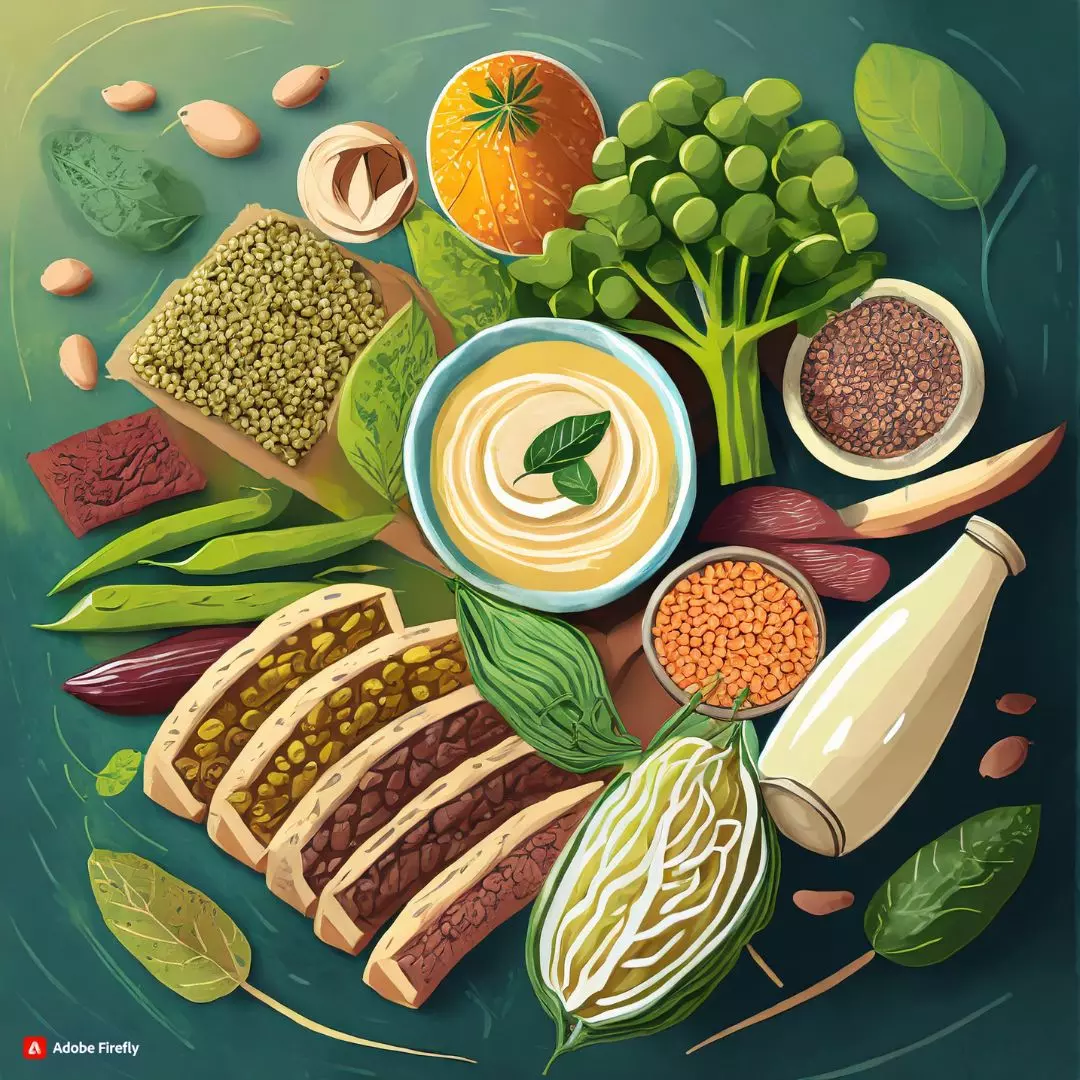In a gastronomic era characterized by a kaleidoscope of plant-based choices, the world is witnessing an unprecedented revolution in dietary preferences. From the aisles stocked with plant-based meats, dairy, and confectioneries to the rise of innovative alternatives like jackfruit and pea protein, consumers are navigating a rich tapestry of plant-based options. However, beneath the surface of this vibrant market, there lies a complex evolution. This article seeks to unravel the profound journey of plant-based alternatives, exploring the global landscape and delving into the burgeoning market in India.
The roots of the plant-based surge in the United States can be traced back two decades when Quorn made its debut in 2002. The true catalysts, however, emerged between 2009 and 2011, as industry giants such as Beyond Meat and Impossible Foods disrupted the conventional norms of the plant-based meat sector. A noteworthy supporter, Bill Gates, injected approximately $2 billion into these ventures, solidifying the movement’s economic foothold.
The ripple effect extended beyond meats, ushering in the era of plant-based eggs in 2013. This expansion marked a pivotal moment, opening doors to consumers who had not previously considered egg replacements. As of 2022, the global tofu market stands at a robust $2.35 billion, attesting to the enduring popularity of plant-based alternatives.
The evolution of plant-based products has been a nuanced journey. Initially designed to mimic dairy counterparts, plant-based milks shifted their focus to taste, sustainability, and cleaner labels. This metamorphosis birthed a diverse array of options, from tiger nut milk to hazelnut milk, meeting the demands of a discerning consumer base. Similarly, the plant-based meat, fish, and cheese sectors have witnessed a progression from taste-centric preferences to a holistic approach encompassing sustainability, nutrition, price, and clean labels.
In a bid to surmount the challenges of delivering on both taste and texture while outshining traditional meat alternatives in sustainability, companies like Airprotein and Solein are revolutionizing the industry by creating plant-based proteins from unconventional sources, such as the very air we breathe.
Rising Demand Of Plant-Based Diet
While India has long been a cradle of vegetarianism and vegan cuisines, the recent surge in plant-based alternatives has been remarkable. The export market for India’s plant-based sector is poised for exponential growth by 2030, propelled by a burgeoning industry with enormous potential. With a predicted CAGR of 11.8% between 2021 and 2028, the Indian market is evolving into a fertile ground for plant-based innovation.
The global shift towards plant-based diets is mirrored in India’s culinary landscape. The rising awareness of the health and environmental consequences of dietary choices is propelling the demand for plant-based alternatives. Predictions indicate a robust CAGR of 11.32% for the global vegan food industry between 2022 and 2027, with the plant-based dairy sector expected to skyrocket from $21 million to $63.9 million by 2024, boasting a remarkable CAGR of 20.7%.
A diverse array of plant-based startups, numbering over 50, is already making waves in India’s culinary sphere. This expansion is not just an economic opportunity but also a chance for farmers to enhance their income while addressing pressing issues like food poverty, climate change, and public health threats.
Diving into the heart of the Indian market, plant-based meat products have become a focal point, with novel innovations ranging from soy-based alternatives to pea protein, mushroom, legume, and jackfruit-based alternatives. Projections suggest a meteoric rise in the market for plant-based meat in India, catapulting from the current estimate of $30-40 million to a staggering $500 million.
As consumers seek diversified options, plant-based seafood is also carving its niche, with a projected CAGR of 31.3% from 2022 to 2032. The plant-based dairy sector, notably plant-based milk, stands as the most developed category with a market value of $2.6 billion, representing 36% of the global plant-based food industry. The plant-based milk sector is expected to further soar, reaching $59-244 million, showcasing the dynamic expansion within the plant-based landscape.
In conclusion, the plant-based revolution is not a fleeting trend but an unstoppable force reshaping the world’s dietary habits. From the evolution of giants like Beyond Meat to the burgeoning startup scene in India, the trajectory of plant-based alternatives suggests a transformative era in the global food industry. As consumers become more conscious of health and environmental considerations, the plant-based movement is not just a culinary choice but a paradigm shift towards a more sustainable and diverse future. The plant-based plate is not just a trend; it’s a culinary renaissance.
Also Read: Positive Thinking’s Impact: Transforming Workplace Dynamics And Well-being











